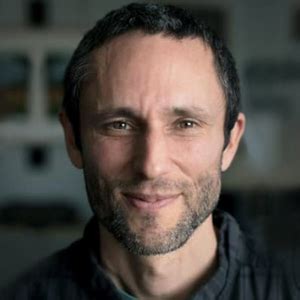
Rather than attempt to understand the conflict by tracing its origins back through time (he tried that, decided it didn’t work, since both “sides” have their own versions of “history”), he outlines a way forward that he thinks might just work.
However, reading about his way forward, I tend to tense against his reliance on international solutions, given that this might easily feed or degenerate into the pernicious, totalitarian, New World Order globalist Agenda 30 that those of us who are awake, and I’m sure that includes Eisenstein, know, with every fiber in us, must not click into place, lest we all end up in chains or worse.
So yes, what got me going in reading Eisenstein’s passionate, but clearly articulated, 5D beyond-polarity-point-of-view all the way through was this remark:
After spending several months educating myself on the history of the conflict, I have come back to my initial instinct that peace does not depend on establishing a correct view of history. It lies outside the justifications that each side has.
Here are his comments concerning RFK Jr.:
It is unlikely that either Israelis or Palestinians will shed the historical narratives in which they are right and other side wrong. I have tried and mostly failed to change the mind of one man (Robert F. Kennedy Jr.) immersed in a “pro-Israel” narrative. He can meet any point by recourse to what I consider a “potted history,” a body of tendentious pseudo-scholarship and curated facts constructed within an alternate universe of Zionist institutes, centers, university departments, and think tanks. Doubtless, he believes that I am similarly deluded in my recourse to authors like Rashid Khalidi, Ilan Pappe, Norman Finkelstein, and Max Blumenthal. If I can’t change the mind of one man, who isn’t even a party to the conflict, what hope is there to achieve peace by that route? We have to appeal to something beyond reason. We have to appeal to the revulsion that says, “I don’t care if the slaughter is justified, it has to stop anyway!” What does a child bleeding under the rubble know of justifications? I have given up on changing Kennedy’s mind on this issue, but I have faith in the goodness of his heart and its power to orient him toward peace.
Here’s how it ends.
Human beings can persuade themselves of the most absurd narratives, especially when those narratives offer a moral identity and exploit the need for acceptance and belonging. Among the most primal of these is the narrative that directs the rampaging mob upon its victim. War propaganda elaborates that primal narrative of sacrificial violence, dresses it up in all kinds of reasons and ethics. It takes huge courage to defy the mob. One who does so risks being the next victim of its fury. Well, courage literally means a capacity of heart. Certainly there are those so suffused with hatred that their hearts have no capacity anymore for compassion. Some of them are in positions of leadership in the world. To the extent their hearts are closed, they may only respond to pressure, self-interest, and force. But most people, even among the political class, have enough heart capacity that they are capable of compassion.
That is where hope lies. It lies in what I have called forgiveness — abandoning the goal of harming the other no matter how justified, and looking to the future rather than the past. The plan I have outlined is only realistic to the degree that people on all sides are capable of courage. It is realistic only if we can recognize that aspect of human nature and call it into expression. That is the essence of peace leadership. A peace leader can still hold opinions about which side is right and which is wrong, but he or she acts from something higher. And over time, as a function of the humanizing of the other side, those opinions inevitably soften.
Let me be clear: forgiveness does not mean forgetting or pretending something didn’t happen. It doesn’t mean enabling the abuser or allowing injustice to continue. Therefore, concrete, verifiable steps toward security, dignity, and human rights must accompany political amnesty.
It may seem that the peace plan I’ve outlined requires a lot more sacrifice on Israel’s part than on the Palestinians’, who would finally achieve the goals of decades of struggle: dignity, equal rights, and a homeland. In fact, the Jews of Israel would gain something just as important—the goal to which the war in Gaza is supposedly dedicated—security. It is no measure of security to constantly oversee a captive population, a powder keg of resentment always on the brink of exploding in hopeless rage. Unrelenting vigilance is not true security. True security is neighborliness, good relations, ease. Besides, Israel’s stated war aim (which is in large part a pretext for a long-standing goal of ethnic cleansing) of “eliminating Hamas” is impossible. With every massacre, with every air strike, with every suspect disappeared into Israel’s prisons, a new Hamas member is born in the person of the victim’s son or brother or nephew. More broadly, the repressive policies undertaken in the name of security fuel the fires of resentment that necessitate those very policies.
Certainly, there are elements within Palestine that seek not dignity, equality, and a homeland, but instead the extermination of the Jews. Likewise, there are elements within Israel that seek not security, but rather an ethnically-cleansed Greater Israel. If these anti-Semites and Judeo-fascists have their way, there will never be peace in the Holy Land. Such people rise to power in a general context of war and hate, and they feed off each other. They depend on each other to exist. They drive each other to new extremes of savagery.
Because such people are in power today, international intervention is essential to resolve the present conflict. Those people, especially in Israel, represent the broad attitude of the public, a majority of whom say in polls that the IDF is using too little firepower in Gaza. Israel will not stop the war on its own, nor reverse the oppressive policies that stoked it. The world must stop allowing it. The United States in particular must stop providing the weapons that allow its continuation. A total offensive weapons embargo to all parties to the conflict is enforceable if regional and global powers are serious about it. With the addition of other sanctions, the world can force those whose hearts are closed to agree to halt the war, temporarily. But peace is more than the cessation of hostilities. There must be a path forward to resolving the conditions that bred war in the first place. That is why a bold transformation of the Holy Land along the lines of Two States, One Homeland is indispensable.
Some may say that only the victims of violence — not an outside observer like myself — have the right to disavow vengeance. What moved me to write this essay, though, was just that, an account I read somewhere of a Palestinian man in Gaza who was dying from injuries he sustained in Israeli captivity. Most of his family had been killed as well. Nonetheless, he said, “I forgive Israel. I forgive those who have done this.” Maybe he understood that there is a higher kind of justice than punishment or vengeance, a higher kind of justice than righting past wrongs. It is to prevent future wrongs, not just to one’s own people but to all people. If that can be achieved, then none of the victims of this horrible war will have died in vain.
HOW TO HEAL THE WOUND OF GAZA

